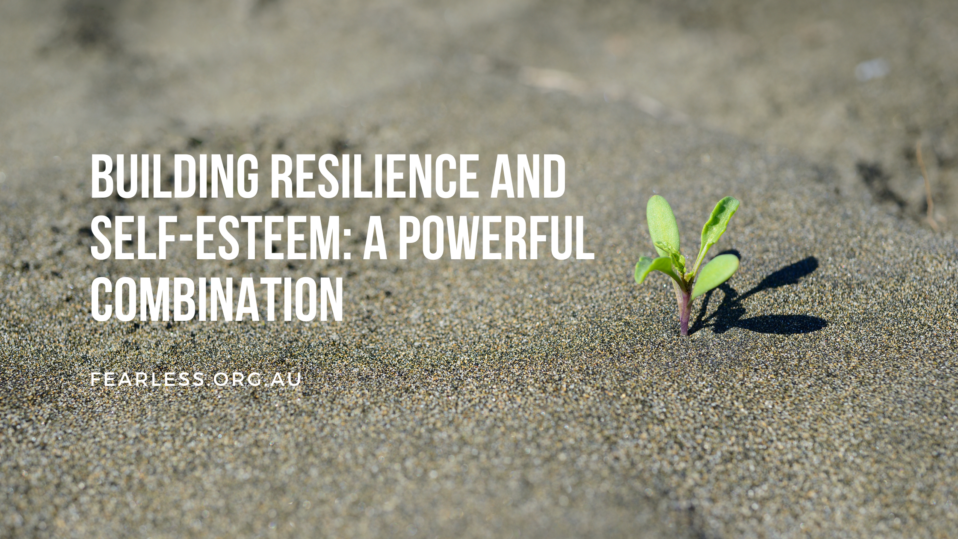Resilience and self-esteem are two critical traits that help individuals navigate life’s challenges. Resilience allows people to overcome adversity, while self-esteem helps them feel good about themselves and their abilities. Together, these traits create a powerful combination that can help individuals lead fulfilling lives.
In this article, we’ll explore the relationship between resilience and self-esteem and offer tips for building both.
Understanding Resilience
Resilience is the ability to bounce back from difficult situations. It’s the capacity to adapt and recover from setbacks, trauma, and adversity. Resilience allows people to face challenges with a sense of confidence, knowing they can overcome them. It’s an essential trait for anyone who wants to succeed in life. Some people are naturally more resilient than others, but resilience is a skill that can be developed.
Building Resilience
To build resilience, individuals need to develop coping mechanisms that help them navigate challenging situations. Here are some tips for building resilience:
- Develop a support network: Having a network of supportive friends and family members can help individuals weather difficult times.
- Practice self-care: Regular exercise, a healthy diet, and sufficient sleep can help individuals manage stress and improve their mental health.
- Cultivate positive self-talk: Individuals can develop a more optimistic outlook by challenging negative thoughts and replacing them with positive affirmations.
- Set realistic goals: Setting achievable goals and celebrating successes along the way can help individuals build confidence and resilience.
Understanding Self-Esteem
Self-esteem is the belief in one’s own worth and abilities. It’s an essential component of mental health and wellbeing. People with high self-esteem are more likely to be confident, motivated, and resilient. Conversely, individuals with low self-esteem may struggle with self-doubt and negative self-talk.
Building Self-Esteem
To build self-esteem, individuals need to develop a positive self-image. Here are some tips for building self-esteem:
- Practice self-compassion: Individuals can develop self-compassion by treating themselves with the same kindness, concern, and support they would offer a close friend.
- Focus on strengths: Focusing on one’s strengths and accomplishments can help individuals feel more confident and capable.
- Avoid negative self-talk: Individuals can challenge negative self-talk by questioning the evidence for their negative beliefs and reframing their thoughts in a more positive light.
- Set healthy boundaries: Setting boundaries with others can help individuals feel more in control of their lives and increase their sense of self-worth.
The Power of Resilience and Self-Esteem
Resilience and self-esteem are two critical traits that help individuals thrive in life. By building resilience and self-esteem, individuals can increase their confidence, motivation, and ability to overcome challenges. Developing these traits takes time and effort, but the rewards are well worth it. With resilience and self-esteem on their side, individuals can face life’s challenges with confidence and determination.
Resilience and self-esteem go hand in hand. By building these critical traits, individuals can improve their mental health, relationships, and overall quality of life. Whether facing a difficult situation or pursuing a personal goal, resilience and self-esteem are essential for success. By following the tips outlined in this article, individuals can cultivate these traits and enjoy a more fulfilling life.
About FearLess
FearLess is a charity that works with people living with the consequences of post traumatic stress (often referred to as PTSD). We also help family members in any way affected by it. Our community members come from all walks of life including those living with PTSD and their families or people who want to do their bit to make the lives of people living with post traumatic stress more enjoyable and fulfilling. Our work complements the activities of other community-based organisations and government agencies that provide services to people with post traumatic stress.
This website has been established to provide information about PTSD to the Australian and New Zealand community. The website’s content is not intended to be a substitute for professional medical advice, diagnosis or treatment. You should seek the advice of an appropriately qualified healthcare professional before making decisions about your own circumstances. You should not disregard professional medical advice, or delay seeking it, because of any information contained on this website.



Post a comment